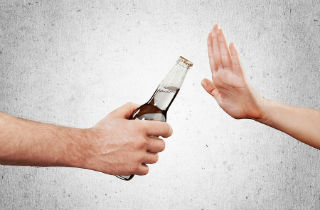Many people begin to know internally when drinking becomes a problem. But do all drinkers need to stop drinking completely? OR can drinking be reduced to healthy levels? We recently received the second edition of a book originally published in 2004 called: “Controlling Your Drinking: Tools to Make Moderation Work for You“.
I thought, “What?! How is that possible?”
It turns out that the recommendations in the book may not be for everyone. However, controlled drinking (also known as harm reduction for alcohol) can work for some. More here on the basics this book has to offer, motivation to reduce drinking, and some considerations for its publishers. Then, we invite your comments, feedback, and ratings in the section at the end.
Controlled drinking definition
So what is controlled drinking, exactly?
Those who control their drinking limit alcohol use set consistent limits for any drinking occasion, including the duration of the episode, the quantity consumed, and/or the behavioral consequences of drinking. While controlled drinking can help about one third of people diagnosed with alcohol dependence, another third have shown that they will quit drinking altogether and that last third will drink themselves to death.
So how do you know whether or not controlled drinking is for you? Basically, the authors say you need to experiment for yourself. And really: if you are drinking daily or bingeing weekly…what do you really have to lose?
The controlled drinking program
Upon starting this book, I asked myself, “Is controlled drinking possible when you’re an alcoholic?”
Well, the answer is NO. And the authors recognize this reality. In fact, this book is designed to help people place themselves on the spectrum of alcohol abuse – addiction through a series of evaluations and assessments. And once you recognize the potential to control drinking, the book recommends a program to do so. Tools include:
1. Personal Assessment
- Alcohol Screening Test
- Alcohol Dependence Scale
2. Self-monitored drinking
- Daily Record Card
- End of week progress form
- Personal Goals Card
- Weekly Steps to Achieve Goals
3. Self-help strategies
- Identifying triggers
- Identifying alternatives to drinking
Behavioral and psychological interventions to prevent problem drinking
The major downfall to this book is that the program activities suggested therein are difficult to systematize. In other words, the publishers would benefit from creating an addendum to the book in a series of worksheets. This way, the logical flow of each step/activity/recommendation could be accessed in one place rather than having to search through heavy text in order to locate them. Activities should be succinct, in logical order, and measurable.
Controlled drinking models
While I was critical of the initial idea, I emerged from this book believing that controlled drinking is possible. In fact, the authors William R. Miller and Ricardo Munoz have measured the success of their program this way. One-year outcomes from the program that they outline include:
15% of participants achieve stable moderation
23% of participants achieve pretty good moderation
24% of participants abstain from alcohol totally
37% of participants continue to over drink
While I know myself that abstinence is my preferred method of dealing with alcohol, this book can help many others who are ready to DO THE WORK of controlling their drinking.









Related Posts